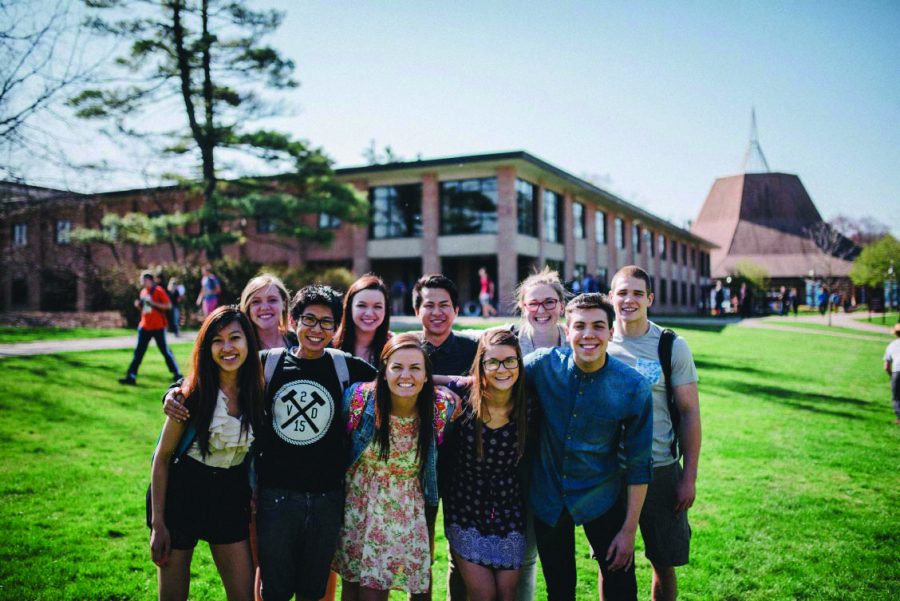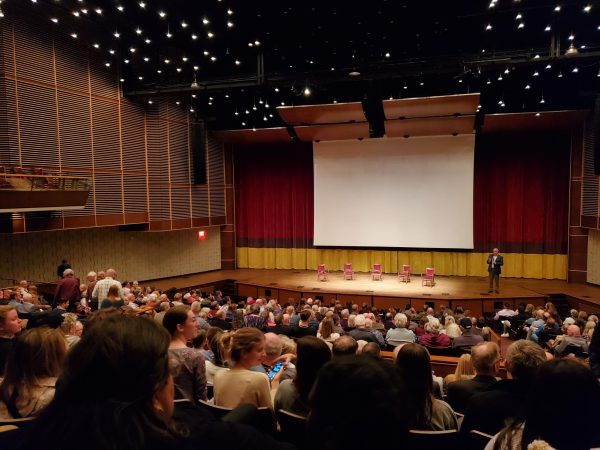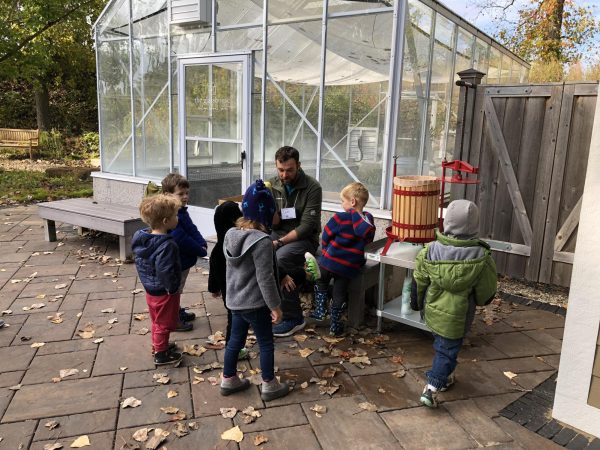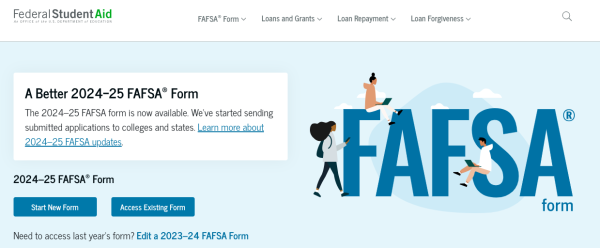Calvin in 2029: College or university?
Calvin is currently considering the question of whether to remain a comprehensive liberal arts college or become a “liberal arts university.”
This is one of four questions framing Calvin’s current visioning process, called Vision 2029. The process is a prelude to the next two strategic plans, which will guide the college’s decision-making through the next decade after the current strategic plan.
While neither term has a set definition, in the US a “college” is typically a smaller school that focuses on undergraduate education, while a “university” is larger, offers more graduate degrees and is often centered more around research than teaching.
Both rules have exceptions, though. Some large, prestigious schools with extensive graduate programs retain the title “college” out of tradition, such as Dartmouth College, and some smaller schools call themselves universities, such as nearby Cornerstone University.
Cornerstone University, also located along the East Beltline, changed its name in 1999 after receiving permission from the state of Michigan. The change in name was preceded by large-scale changes to the institution’s facilities, adding on to the campus and raising enrollment. It also added an honors program and changed their colors, mascot and logo.
Calvin already operates as a university in several ways, such as offering graduate programs and running scholarly centers and institutes, said Visser. She and biology professor Amy Wilstermann are co-chairing the portion of the visioning team dedicated to this question.
In proposing the question, Wilstermann noted that there were three things to take into consideration: Calvin’s mission, community and student learning. She said that becoming a university could either hinder or enhance Calvin’s mission, might change the collaboration on campus and would have implications for learning in the classroom, research, internships and service learning.
Wilstermann also observed that Calvin already has the appropriate emphasis on scholarship, which is something often associated with universities.
Calvin currently offers three graduate programs: a master of education, a master of accountancy and a master of arts in speech pathology.
Visser said becoming a university wouldn’t automatically mean expanding the number of graduate programs offered, though many community members have seen it as a likely consequence of adopting a university model.
Nicholas Wolterstorff, a former Calvin philosophy professor, said that adding more graduate programs could be in line with Calvin’s traditional mission:
“From its very beginning, Calvin has not only had a liberal arts program, it has also had its eye on preparation for careers other than careers in higher education. It has had an education program, in which students are trained for teaching in elementary and secondary schools. Traditionally, a B.A. in education was sufficient for a career in elementary and secondary education. Recently, states have been requiring a master’s degree in education. Calvin has responded by introducing a masters in education program.”
Wolterstorff suggested that the decision to become a university would be a decision to offer more of these kinds of programs:
“I see the question of whether Calvin should become a university as the question of whether Calvin should expand its career-oriented programs at the masters level, and whether it should perhaps offer some at the doctoral level. The question is not whether it should introduce career-oriented programs. It has always had them.”
In a panel discussion on Thursday, Nov. 9, community members gathered to hear perspectives on this visioning question from Adejoke Ayoola, professor of nursing; Joel Carpenter, director of the Nagel Institute and former provost; Debra Rienstra, professor of English; and Nigel Likely, director of pre-college programs.
Carpenter said that becoming a university is in line with Calvin’s “historical trajectory,” which was inspired by Abraham Kuyper’s model of a Reformed university in the Netherlands and a “holistic Christian vision of cultural engagement.”
“Calvin has university values and desires hardwired into its genetic structure,” Carpenter said.
Ayoola and Likely both said that becoming a university would offer Calvin a lot of opportunities for growth, especially in the area of student and faculty research. Ayoola emphasized the importance of making whatever education Calvin offers in the future as interdisciplinary as possible.
Other panel participants and audience members agreed, saying that Calvin must be careful if it goes to a university model to avoid separating the disciplines further than they are at Calvin now.
Rienstra emphasized the importance of “permeable membranes” between departments and disciplines — i.e., structures that allow students to study and participate in many fields at once.
“One of the beautiful things about Calvin is that our students all mix together,” Rienstra said. In a university model, “we would have to find a way not to have them all separated but to have them in the same classes, the same living situations, so they can all learn from each other.”
Rienstra also pointed out some benefits of Calvin’s current status as a four-year residential college, such the fact that most students have to go somewhere else for graduate school:
“That makes us salt and light in a way that I wonder if that would continue as much under a university model, where people could have their entire education in this context,” Rienstra said.
Worldwide, Carpenter said, the terms “college” and “university” are “notoriously fluid and culturally relative.” In some countries “college” refers to what in the US would be called high school, while in others it suggests “community college.”
However, in the US, the word “college” implies an emphasis on teaching on student-faculty interaction that could be hidden by switching to the term “university.” Web pages written for high schoolers about college options often rely on these common meanings.
For example, ThoughtCo.com offers students this advice:
“If you want a personalized experience with smaller class sizes, a college may be your best option. But if a diverse student body and a possible graduate degree are on your must-have list, then a university might be the way to go.”
Current students at Calvin have expressed concern at the possible change.
Sophomore Erin Van Baren is opposed to the change because “Calvin University doesn’t sound as good as Calvin College.”
Junior Melissa Van Baren was more concerned about maintaining the close community that Calvin currently has:
“The small size of Calvin was a draw for me,” said Van Baren. “I like how I can get to know professors in my major. I would be worried that in becoming a university, Calvin would lose that aspect.”
Junior Macy Schimmel commented that she would be for it “if it meant we offered [more] online courses, especially for core classes.”
Commenting on the panel after the event, Rienstra said she was “encouraged by the fervent commitment to maintaining our Reformed identity.” She went on to say:
“The central question is really this: What gifts do we have to give the larger church and the world, and what form will best enable us to give those gifts?”











